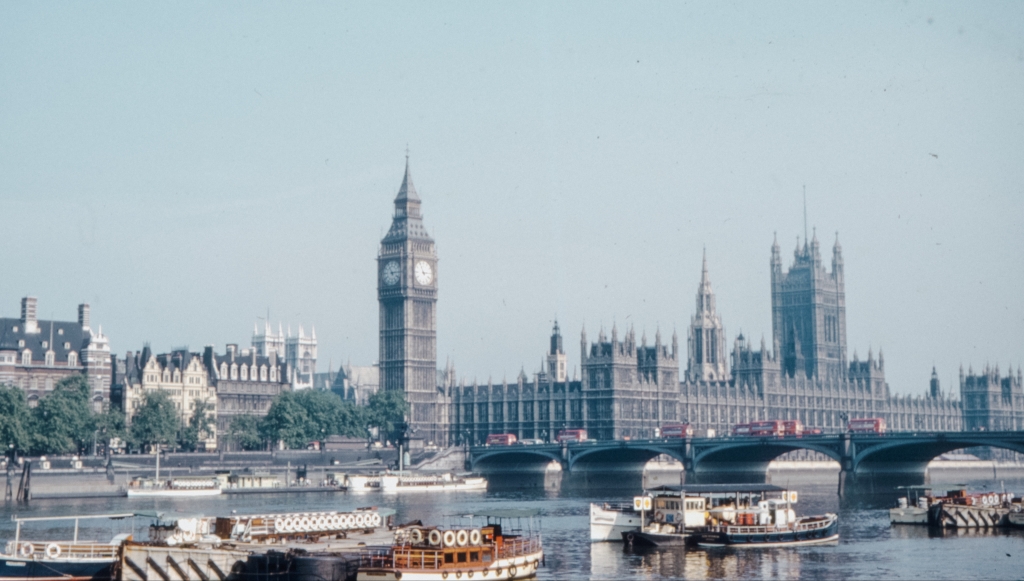Constitutional lawyers have been engaged in a major debate over whether parliamentary authorisation is needed for Article 50 to be triggered and the process of negotiating Brexit to formally begin. In this post, the UCL Constitution Unit’s Robert Hazell and Jack Sheldon move the discussion on, asking how parliament might debate the triggering of Article 50 and, once it has been triggered, what role parliament might play in scrutinising the negotiations that follow.
There has been an outpouring of blog posts discussing whether there is a legal requirement for parliamentary authorisation before the Prime Minister can trigger Article 50 and start the formal negotiations to lead to the UK’s withdrawal from the EU. However, it is probable that regardless of the legal position, the political realities will require some form of parliamentary consent. This post moves the discussion on, to ask in what ways parliament might debate the triggering of Article 50, and, once it has been triggered, what role parliament might play in scrutinising the Brexit negotiations that follow.
Controlling the use of Article 50
Whether the government wants it or not, parliament is likely to have an opportunity to express its support for or opposition to the triggering of Article 50. This could take the form of either legislation, which would formally bind the Prime Minister and government, or a debate on a resolution about the triggering of Article 50 and the conduct of negotiations.
Legislation
Some have argued for the passage of legislation to govern the Brexit process. A court action has been launched to test whether legislation is required before Article 50 can be triggered. Undoubtedly much primary and other legislation will be necessary over the coming years to achieve separation. To explain the different options, this post assumes the court action will fail, so that legislation prior to triggering Article 50 is optional, and not a legal requirement.
For the government, legislation is not an attractive option. To introduce a bill now would take time, and the parliamentary proceedings on any bill would be bound to attract amendments (in particular from the government’s own MPs) aimed at limiting the government’s discretion, which could also show up serious disagreements within the governing party. The handling problems in the Lords (where the government has no majority, and no control over time) could be even greater than in the Commons.
A legislative process would probably result in the government retaining some discretion, but being forced to make concessions to bind its hands in the negotiations (for example, preserving the rights of EU nationals already resident in the UK). The consistency and interpretation of such provisions in an Act would themselves become the grounds for much political and legal skirmishing in the next few years. The government will wish to avoid legislation as being too risky, too prescriptive, and too uncertain in terms of its legal effects.
A resolution to authorise the triggering of Article 50
A much simpler way for the government to obtain explicit approval from the House of Commons would be for it to table a motion for debate and seek the approval of the House. Such motions are not binding on the government (only legislation is) but, depending on any majority received, it would be a powerful political brake. The motion might say ‘That the House notes the outcome of the referendum held on 23 June and invites the Government to invoke Article 50…’. It could also include other phrases designed to maximise support and perhaps set out key objectives for negotiations. It need not set a specific timetable. Article 50 need not be triggered right away. The government would want to establish parliamentary approval first and then try to retain some discretion on the actual timing.
If the government chose not to seek parliamentary approval itself, it is probable that there would be serious dissent within the governing party. The opposition could exploit this by tabling motions for debate on opposition days, which would embarrass the government. If this opportunity were not taken up, backbenchers would be likely to obtain debating time through the Backbench Business Committee (it should be remembered that the road to the recent referendum started with a debate allowed by the Backbench Business Committee, leading to 81 Conservative MPs defying the whips to vote for an in/out referendum in October 2011). Either route could be used to give the House the opportunity to vote on a relevant motion. Early day motions (which are not debated, but allow multiple members to sign up to show strength of feeling) might also be used and would be likely to attract significant numbers of signatures. This would boost the case for debate and vote on the floor.
When might this happen?
The summer recess begins on 21 July and lasts for almost three months, until 10 October, save that parliament is due to return for a two-week session from 5 to 15 September, before the party conferences. If the government wants to trigger Article 50 earlier than October, it is likely to recall parliament to seek approval for doing so. Under standing orders of the House (SO 13), the House of Commons is recalled during a recess only when the government proposes a recall, and the Speaker agrees. So the initiative lies with the government. If the government decides to trigger Article 50 and declines to recall parliament there are things that members can do, purely politically, to put pressure on the government to do so – the last time such a move succeeded was in 2002, when government backbencher Graham Allen organised a campaign to recall the Commons over the Iraq war. This caused sufficient embarrassment to the government that it ultimately gave in.
It is more likely that Article 50 will be triggered some time after parliament reconvenes in October. Theresa May has indicated that Article 50 will not be triggered until a ‘UK approach and objectives for negotiations’ have been established. During her leadership campaign she suggested that this was unlikely to be before the end of the year, although that was on the basis of not taking office until September. David Davis, the new Secretary of State for Exiting the European Union, has written that the formal negotiations should begin ‘before or by the start of next year’.
Parliamentary oversight of the Brexit negotiations
Once Article 50 has been triggered negotiations between the UK and the other 27 EU member states on the terms of Brexit will begin. The government will conduct the negotiations, but parliament is likely to demand an input and to be kept informed of progress. Mechanisms by which this oversight function can be carried out include scrutiny of the usual kind, such as through parliamentary questions, ministerial statements and select committees. It is also possible that a procedure similar to the ‘scrutiny reserve’, which enables committees in the Commons and the Lords to constrain the government’s position prior to European Council meetings, could be introduced.
Parliamentary questions, ministerial statements and debates
The withdrawal process will be the daily stuff of politics for years, with every opportunity taken from Prime Minister’s Questions to adjournment debates and petitions to canvass the issues. Backbenchers will initiate debates and private members’ bills that press their own viewpoints, as well as bombarding ministers with parliamentary questions. The Speaker is likely to accept urgent questions relating to aspects of the negotiation on a regular basis, and ministers will be expected to make statements to the House following negotiation meetings, after which there will be opportunities for opposition and backbench members to participate in extended question and answer sessions. There is also likely to be a dedicated question time at which questions can be put to ministers in the new Department for Exiting the European Union.
When the legislation to abolish the Greater London Council was going through parliament in the mid-1980s, Tony Banks MP, the former chairman of the GLC, tabled hundreds of parliamentary questions asking how various parts of London would be administered under the new arrangements. It was clear from the slow stream of answers he received, that many of the implications had not been thought through and policy was being made up on the hoof as he raised each new issue.
Scrutiny through select committees
Lord Lisvane, the former Clerk of the House of Commons, has predicted that there could be a ‘super-committee’ to oversee the Brexit process. This is likely to take the form of a select committee scrutinising the work of the Department for Exiting the European Union. The existing select committees of both Houses can also be expected, on their own initiative, to begin inquiries. In the Commons, the Foreign Affairs Committee is likely to be in the lead, with the Treasury Committee, the European Scrutiny Committee and the Public Administration and Constitutional Affairs Committee close behind (PACAC is chaired by a prominent Brexiteer, Bernard Jenkin). It is almost certain that a committee to shadow the Department for International Trade will also be established. In the Lords, the EU Committee and its sub-committees are the pivot of its committee system. These committees can be expected to demand that ministers set out their plans for the process which will follow the referendum result. The other select committees will follow: all areas of government activity are affected by Brexit to a greater or lesser degree.
The ‘scrutiny reserve’ procedure
The Lords EU Committee and the Commons European Scrutiny Committee are each the guardians of the so-called ‘scrutiny reserve resolution’. Its purpose is to prevent ministers entering into politically or legally significant agreements in the EU without first having the consent of the committees and each House. While it would be hard to argue that Article 50 notifications fall within the exact terms of the resolution, they undoubtedly fall within its spirit.
The scrutiny reserve procedure enables either the House of Commons or the Lords to constrain ministers from giving agreement in the European Council of Ministers to an EU proposal that has not ‘cleared scrutiny’. It does not amount to a veto: a minister may exceptionally give agreement to an uncleared proposal, but only with the agreement of the European committees in both Houses, or if there are special reasons such as urgency, or the risk of damage to UK national interests. What it does do is enable parliament to consider before European Council meetings the main issues that are coming up, and to give UK ministers a strong steer on their negotiating line. This procedure would not apply to the Article 50 negotiations, which will be negotiations with Europe rather than within Europe. However, It is possible to envisage the government accepting a similar procedure for the Brexit negotiations, using the scrutiny reserve procedure and the existing European committees in each House (with the Commons committee chaired by the arch-Brexiteer Sir Bill Cash), or through establishing a new joint committee of both houses. The scrutiny reserve procedure cannot completely tie ministers’ hands, because all negotiations involve trade-offs and last minute deals; but – so long as parliament has sufficient notice of what is coming up – it can enable parliament to set clear parameters.
The scrutiny reserve is another form of ‘soft’ parliamentary procedure on which Ministers could defy the two Houses if they were determined to do so. However, the new Prime Minister will be invited to appear before the Commons Liaison Committee at an early stage, and the select committee chairs will want to focus mainly on parliament’s role in scrutinising the post-referendum process. It will be hard for Theresa May to avoid giving assurances that the government will co-operate fully with any select committee inquiries, and that it will observe the spirit of the scrutiny reserve procedure.
Robert Hazell is Professor of Government and the Constitution at the Constitution Unit.
Jack Sheldon is the Editor of the Constitution Unit blog and newsletter.
Note: The views expressed in this post are those of the author, and not of the UCL European Institute, nor of UCL.
This post was originally published by the UCL Constitution Unit and is re-posted with permission. Featured image credit: Brad Hammonds (Flickr/CC BY-NC 2.0).
The implications of Brexit for Whitehall and Westminister are explored further in a Constitution Unit briefing paper by Nick Wright and Oliver Patel which can be accessed here.





Leave a comment